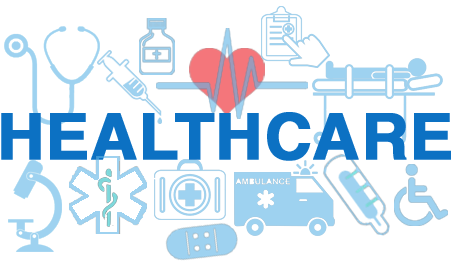
We have all experienced the health care system. Honestly, can you say you are looking forward to your next experience? Part of it is the uncertainty of what we will find out. However, most of our anxiety and frustration is about the feeling we are not in control. Well, you can be, and you have the right to be in total control of your health and your care.
HIPPA
The Health Insurance Portability and Accountability Act of 1996 (HIPAA) is an often abused federally protected patient health care protection. Unfortunately, most of us roll our eyes at the mention of those letters, because typically the process brings bureaucratic delivery, endless seemingly unnecessary paperwork, and lack of ease. Consequently, HIPPA is often a sword against us rather than a shield protecting us.
Essential Health Care Rights
HIPPA guarantees your fundamental health care rights:
- You have the right to request and receive copies of all of your health care records. Don’t let any medical provider tell you differently or delay producing your health care records. I know from legal experience that with medical errors or less than ideal treatment, the production of records slows down. If you are ever on the receiving end of improper care or malpractice, immediately demand to see every single one of your records, including all nurse’s notes, lab testing, x-rays, act. This information is essential even if your care was excellent. It is your health care history, and it can be critical to successful and timely treatment in the future.
- You have the right to share this information with others and request that your provider do so.
- Your must receive your medical records within 30 days.
- Medical record production cannot be denied if your bill is not paid in full.
- You can request delivery of records on paper, digitally, or viewed online. Today, having a digital health care dashboard is a feature that should be common for health care providers. It allows you to have all your records in an easily viewed and indexed digital platform. Your entire health care history can be available to you and, importantly, be available for your subsequent health care treatment and discussion of options.
Informed Consent
This notion that we are in the dark about our health care history and options for treatment and hand over our health and welfare to medical providers is what we grew up expecting.
Most hospitals have patient advocates available to help you fully understand your condition and treatment options. Use them.
Always insist on a thorough and understandable explanation of your treatment, options, expected outcomes, and access to second or third opinions. It is your health and your future.
Health Care Power of Attorney
You have the right to appoint an agent to act on your behalf to make all health care decisions for you if you are unable or unwilling to do so. Therefore, please do not risk leaving that power in the hands of medical providers instead of your family or trusted friend.
Importantly, this essential document also includes your comprehensive instructions on life support, access to your medical records, and whether you wish to avoid prolonged suffering or extend your life for as long as possible. You can also choose to spend your last days at home and provide for your final plans and wishes.
Power of Attorney documents are readily available and customized to your specific wishes. In the POA’s I prepare, I include the insistence that your family has access to be with you in your hospital room or to see you electronically via Facetime, Zoom, or other digital means. This recent practice of allowing people to suffer alone and even die alone is unconscionable.
All your health care directives are included in your preferred Living Trust estate plan.
Docubank
Unfortunately, when we seek medical treatment we almost certainly do not have our Health Care POA with us. Today there is a service, Docubank, that will provide you with a wallet card that allows any medical provider to access your POA 24/7 365 anywhere in the world.
Docubank gives my clients a 65% discount – only $25 a year for this card that also can include your emergency contact person, family members, and a medical snapshot. Call my office and we will make sure you are given the discount.
Living Trusts
At the end of your life, or at incapacitation, if you have property or bank accounts in your name, they risk Probate.
- A Will must be Probated. The rule is no one can legally sign your name. Therefore, all assets in your name are subject to the Probate process, which averages 18 months and is costly.
- A Living Trust completely avoids Probate.
- Your financial accounts, life insurance policies, and deferred compensation accounts can name your Living Trust as beneficiary, subject to essential tax considerations.
- A Living Trust estate plan includes both Health Care and Financial Power of Attorney documents. It also consists of a Last Will and Testament. A Will is necessary for guardianship of minor children. It also transfers assets in your name out of Probate.
Contact us today for further information or visit Tuohy Law Offices now.
Tom Tuohy is the founder of Tuohy Law Offices.
LinkedIn
TomTuohy.com
312-559-8400
17W220 22nd Street
Oakbrook Terrace, Illinois, 60181

This blog entry is created for information purposes. Therefore, it is not legal advice. Please do not use this blog as legal advice, which turns on specific facts, as well as laws in specific jurisdictions. No reader of this blog should act or refrain from acting based on any information included in or accessible through this blog without seeking the appropriate legal or other professional advice on the particular facts and circumstances at issue from a lawyer licensed in the reader’s state, country or other appropriate licensing jurisdiction.



